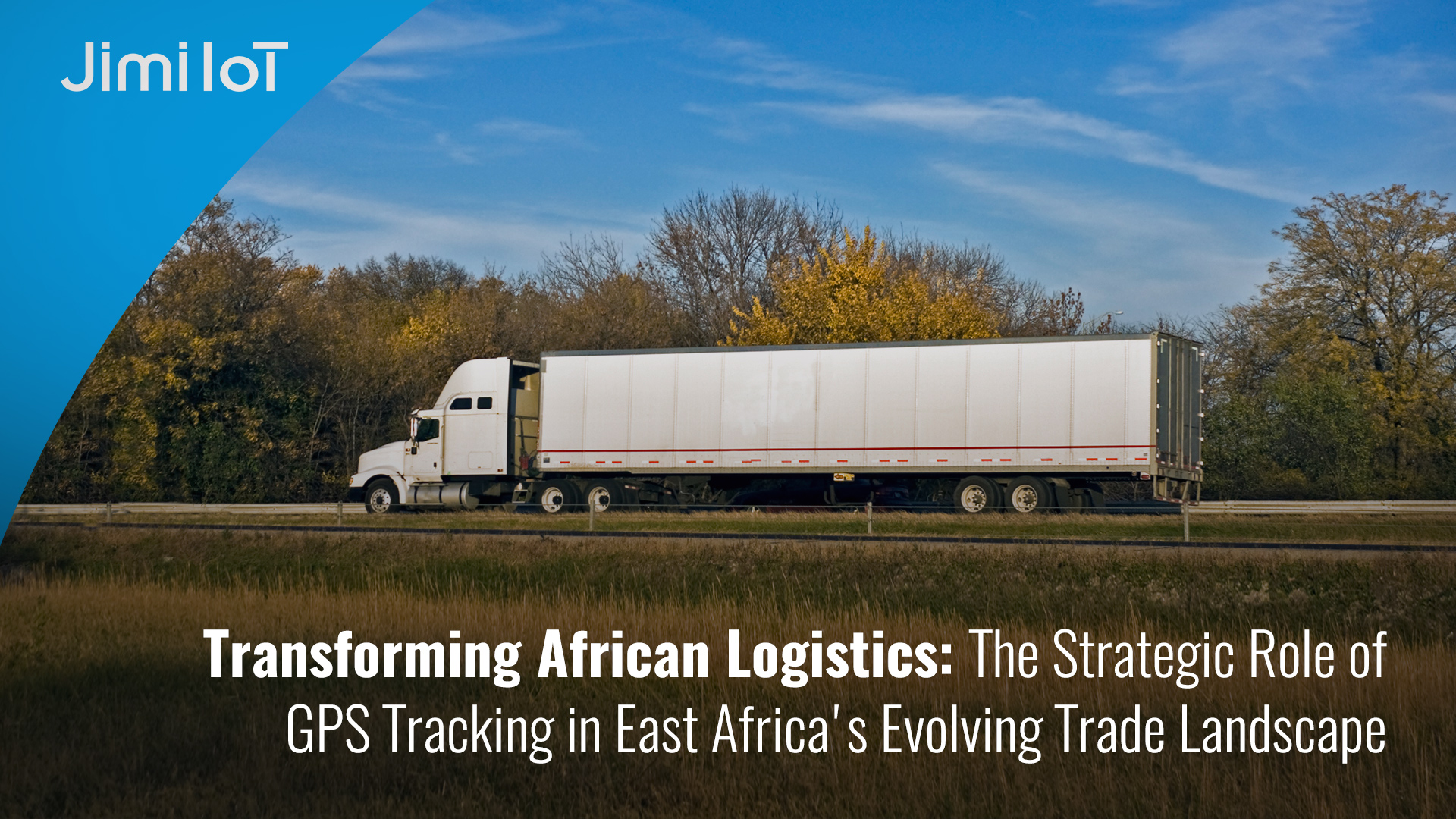Introduction

As East Africa cements its position as the continent’s fastest-growing economic bloc, the demand for efficient, transparent, and scalable logistics solutions has never been more critical. The Africa Development Bank’s projection of the East African Community (EAC) leading regional growth in 2023 and 2024 underscores the potential for trade, tourism, and services-led expansion—yet the region’s logistics infrastructure must keep pace with this economic acceleration.
From port delays and customs inefficiencies to non-tariff barriers between member states, the African Logistics has long been hindered by fragmented systems and outdated processes. However, this tide is turning rapidly—driven by digital customs reforms and the increasing deployment of GPS tracking systems that offer fleet managers, logistics providers, and cross-border traders the real-time control and data visibility required to navigate this complex environment.
Logistics in East Africa: A Region on the Move
With Kenya and Tanzania representing the two largest economies in the region—and both recording trade volumes of over USD 20 billion in 2023—the momentum behind East Africa’s logistics networks is undeniable. Yet intra-EAC trade still lags, hampered by unresolved trade disputes and regulatory misalignment.
The EAC’s renewed focus on resolving cross-border challenges, particularly the tariff and compliance disputes between Kenya and Tanzania, signals a decisive shift. Progress is also visible in customs innovation: Kenya’s Integrated Customs Management System (iCMS) and Tanzania’s TANCIS have dramatically reduced clearance delays and improved revenue collection through automation and digital transparency.
For logistics operators, this presents both a challenge and an opportunity. While the regulatory environment becomes more fluid and regional ambitions such as the EAC Monetary Union loom on the horizon, operational agility and compliance will be key to seizing new trade corridors. This is where modern GPS tracking systems are proving to be mission-critical assets.
GPS Tracking as a Pillar of Modern African Logistics
GPS tracking has moved beyond basic location monitoring. Today, advanced GPS solutions support a broader operational strategy, combining real-time location data with advanced analytics, driver behavior insights, route optimization, and cargo integrity monitoring. In East Africa, where supply chains often traverse unstable terrain—both physical and regulatory—such features are indispensable.
Fleet managers can monitor vehicle movements in real time, receive alerts for route deviations or unsafe driving behaviors, and ensure compliance with evolving border protocols. Integration with regional cargo tracking systems like Kenya’s RECTS enhances supply chain transparency, reducing the risk of cargo theft, loss, or delays at borders.
Moreover, GPS tracking empowers local transport businesses to scale their operations sustainably. As new markets in Uganda, Rwanda, South Sudan, and Ethiopia emerge, having a connected, intelligent fleet ensures that service quality and compliance standards remain consistent across diverse territories.
The Jimi IoT Advantage: Purpose-Built Solutions for African Fleets
Jimi IoT, a global leader in IoT-based vehicle telematics and asset tracking, offers a robust suite of GPS tracking solutions tailored for the unique challenges of African logistics.
Take, for instance, the VL808 LTE GNSS tracker—a hardwired, waterproof terminal designed for vehicles of all types, from motorcycles to commercial trucks. With features like multi-GNSS positioning, LTE connectivity with 2G fallback, 1-Wire sensor support, and a durable IP67-rated enclosure, the VL808 is particularly well-suited for East Africa’s mixed infrastructure environment. The device ensures accurate location tracking even in remote areas, helping logistics providers maintain operational oversight in regions with patchy connectivity or harsh conditions.
For businesses seeking more compact yet versatile options, the VL103 Series offer flexibility, discrete installation, and a wide voltage range (9-90V), making them ideal for fleet operators managing motorcycles, taxis, and light commercial vehicles. The unit support essential features like real-time tracking, harsh driving alerts, and geofencing—helping to optimize delivery times and enforce driver accountability.
Beyond vehicle tracking, Jimi IoT also addresses cargo security and asset monitoring. The LL301 and LL303Pro trackers offer ultra-long battery life and environmental resilience, supporting African Logistics firms managing cross-border, long-haul shipments of high-value or time-sensitive goods.
In short, Jimi IoT’s diverse portfolio supports the growing needs of East African trade ecosystems—from last-mile delivery in Nairobi to cross-border freight movement between Dar es Salaam and Kigali.
Alignment with Regional Customs Evolution
GPS tracking systems also complement digital customs initiatives by providing the data required for streamlined clearance and cargo verification. With platforms like iCMS and TANCIS already operational, GPS solutions that offer seamless integration via cloud-based APIs ensure that fleet data flows into customs management systems, enabling predictive checks, expedited processing, and regulatory compliance.
Moreover, as artificial intelligence becomes more embedded in customs operations—such as Tanzania’s plans for predictive cargo issue detection—GPS devices equipped with accelerometers, video recording, and behavior analytics (like those offered in Jimi IoT’s JC Series) can provide a deeper layer of intelligence that aligns with national objectives.
Looking Ahead: Resilience through Technology
The coming years will test the adaptability of Africa’s logistics sector. With increasing geopolitical risks, environmental shocks, and regulatory reforms, logistics operators will need to invest in infrastructure that is not only reliable, but also intelligent and future-ready.
GPS tracking will be at the heart of this transformation. As both a compliance tool and a business enabler, GPS technology ensures operational continuity, supports cost control, and improves delivery reliability. For regions like East Africa—brimming with potential yet marked by complexity—these capabilities are essential.
JC371: Advanced Vision for Commercial Fleets
To further elevate safety and visibility, the JC371 Multi-Channel AI DashCam from Jimi IoT represents the next frontier in fleet intelligence. This powerful terminal supports up to three 1080P cameras and integrates ADAS (Advanced Driver Assistance Systems) and DMS (Driver Monitoring Systems) algorithms to detect fatigue, phone usage, lane departure, and more. The JC371’s ability to upload incident footage in real time, combined with emergency features like a panic button, makes it a strategic solution for public transport, hazardous materials transport, and long-haul logistics—especially in high-risk or high-value routes.
Conclusion:
The convergence of economic ambition, digital transformation, and regional integration is driving unprecedented change in East Africa’s logistics sector. For fleet managers and logistics providers, embracing GPS tracking and intelligent telematics is no longer optional—it’s a competitive imperative.
By investing in proven, scalable solutions like those offered by Jimi IoT, logistics operators can position themselves not only to survive in a shifting landscape but to lead the next wave of East African trade expansion.
Why JimiIoT
JimiIoT is a global leader in innovative IoT solutions. We provide cutting-edge hardware and software tailored to enhance efficiency and connectivity. Our range of products includes advanced GPS tracking devices, asset management solutions, smart vehicle dashcams, and telematics platforms. With a focus on technological excellence and customer satisfaction, we empower businesses to optimize operations and gain valuable insights from data-driven analytics. Trust JimiIoT to drive positive change and unlock growth opportunities in the digital age.
If you would like more details, please visit Facebook, LinkedIn, INS, and Twitter pages for further information.

 US
US ES
ES PT
PT TH
TH VN
VN JP
JP



